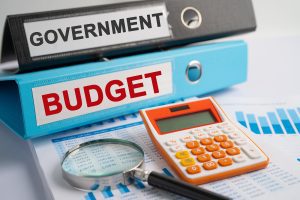
On September 22, 2022 the Board of County Commissioners (BCC) adopted the $1,959,954,000 (yes, that is billions) Fiscal Year 2023 budget. Adopting the annual budget and the associated tax rates are arguably the most important duties of a County Commissioner. It is important to recognize that the budget must fund service expansions required by the ever-growing population in Collier County, while also addressing the ongoing need to maintain aging infrastructure, further compounded by extraordinary inflationary pressures.
Following public input at the final budget public hearing, the BCC had lengthy discussions about the budget and whether the tax rate could be reduced, given the 16.85% increase in county-wide taxable value; current taxable value, as determined by the Collier County Property Appraiser, is $122.3B. The annual tax bill is a function of two major components: the valuation of the property and the tax (millage) rate(s) adopted by the respective governmental units (City, County, School Board, independent taxing districts). As a side note, the Clerk of Courts administers the Value Adjustment Board (VAB) hearings, where property owners can contest the valuation placed on their respective properties. It must be noted that there were 1,156 VAB petitions filed this year, as compared to the 607 petitions filed in the preceding year.
The Save Our Homes constitutional amendment affords existing property owners some built-in protecting against dramatic increases in assessed value. Homestead properties are limited to a 3% annual increase in assessed value or CPI, whichever is less. A subsequent amendment to the Save Our Homes initiative limited increases in assessed values for non-homestead properties, commercial properties, and vacant land to a 10% annual increase. However, upon a change in ownership, the Save Our Homes cap is removed, and the property is reassessed at current market value, which may result in significant increases in the tax bill for the subsequent property owner.
The General Fund millage rate of 3.5645 (equating to $356.45 in taxes per $100,000 of taxable value) has been levied at this constant level since FY 2010. This constant millage rate is known as being “millage neutral”. In boom times, the millage neutral tax rate generates additional revenue to fund government services. Conversely, during an economic downturn, the millage neutral tax rate has the opposite effect as tax revenues are reduced commensurate with the reduction in taxable value. The adopted FY 2023 budget policy noted that during the recession taxable value dropped by $24 billion, requiring substantial General Fund budget reductions between FY 2009 and FY 2013.
However, as the taxable value recovered beginning in FY 2014, the millage neutral policy provided funding to: restore programs cut or postponed during the recession, establish a long-term capital maintenance reserve, provide for strategic economic development agreements, make strategic property acquisitions, and pursue the location/relocation of certain County facilities to closely align with expanding eastern population while simultaneously updating/replacing those facilities.
Another issue raised by Commissioners is that government is a service business that requires a strong, stable workforce to deliver those services. There is competition for employees in Collier County, compounded by the relatively high cost of living in this community, particularly due to housing costs. Recruiting and maintaining a stable workforce is essential to government service delivery. The FY 2023 budget includes funding to upgrade the County’s pay and classification system to ensure the County competitively recruits new employees, retains a current high-performing workforce, and motivates employee work performance.
Maintaining a stable workforce, continuing to re-invest in the infrastructure and amenities that distinguish Collier County as one of the most desirable places to live, and developing a measured response to provide new facilities to serve a burgeoning population, are all components of long-term fiscal sustainability. Financial decisions must continue to be made with a long-term fiscally conservative focus.

